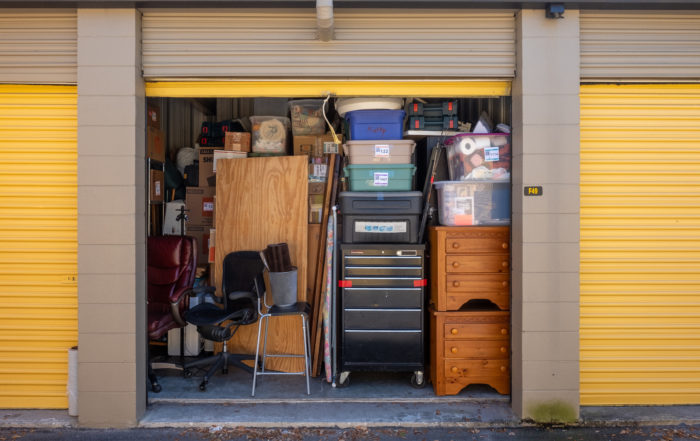Storing Business Inventory in Self-Storage: Benefits and Tips
Managing inventory can be one of the biggest challenges for a business owner, especially when you don’t have enough space to store it all. Whether you’re running a small e-commerce store, a retail operation, or a service-based business with supplies and equipment, finding adequate and affordable storage can make a huge difference in your operational efficiency. This is where self-storage comes into play.
Self-storage units offer a flexible and cost-effective solution for storing business inventory, freeing up your workspace and helping you stay organized. In this blog, we’ll explore the benefits of using self-storage for business purposes and share practical tips for maximizing its use.
Benefits of Using Self-Storage for Business Inventory
1. Cost-Effective Storage Solution
Renting a dedicated warehouse space for your business can be expensive, especially if your storage needs fluctuate throughout the year. Self-storage facilities often offer more affordable options, allowing businesses to rent only the space they need, for as long as they need it. This flexibility makes it ideal for small businesses or those with seasonal inventory. Instead of paying for a large warehouse all year round, you can adjust your storage unit size based on your current needs.
Moreover, self-storage units typically come with month-to-month rental agreements, so you’re not locked into long-term contracts. This makes it easier to scale up or down as your business grows or your inventory fluctuates.
2. Free Up Office or Retail Space
Using valuable office or retail space to store inventory can clutter your work environment and reduce your ability to create a comfortable space for customers or employees. By moving excess stock, equipment, or supplies to a self-storage unit, you free up more room to enhance your workspace or expand your sales floor. This can improve overall productivity and create a better environment for both employees and customers.
3. Security Features for Peace of Mind
Many self-storage facilities offer robust security features to keep your business inventory safe. Units often come with advanced surveillance systems, gated access, individual unit locks, and security personnel, all of which help to reduce the risk of theft. Some facilities even offer climate-controlled units, which can be crucial if you store sensitive items that are vulnerable to temperature or humidity changes.
Knowing that your inventory is stored in a secure, monitored facility provides peace of mind, allowing you to focus on running your business without worrying about potential losses.
4. Flexibility for Seasonal Inventory
If your business deals with seasonal inventory—such as holiday decorations, summer clothing, or outdoor equipment—self-storage provides a flexible solution. You can store seasonal items when they’re not in demand and retrieve them when they’re needed, keeping your workspace clutter-free throughout the year. This ensures that you’re always prepared for peak sales periods without having to find permanent space for items that are only sold a few months out of the year.
5. Convenience and Accessibility
Many self-storage facilities offer extended hours or even 24/7 access, so you can retrieve your inventory whenever you need it. This is particularly useful for businesses that require access to stock outside of regular business hours or need to make last-minute inventory adjustments. Additionally, most storage units are conveniently located, making it easy to transport items between your store, office, or home.
Some facilities also provide loading docks or drive-up units, simplifying the process of moving heavy or bulky inventory.
Tips for Storing Business Inventory in Self-Storage
Now that you understand the benefits of using self-storage for business inventory, here are some practical tips to help you make the most of your storage unit.
1. Choose the Right Unit Size
One of the most important decisions is selecting the right storage unit size for your needs. If you choose a unit that’s too small, you’ll struggle to fit all your inventory, while a unit that’s too large may result in wasted space and higher costs. Start by estimating the amount of inventory you plan to store, and consider leaving room for future expansion. Many facilities offer units in various sizes, so you can scale your space up or down as needed.
If you’re unsure, most storage facilities have staff who can help you choose the right size based on your inventory requirements.
2. Organize for Easy Access
Effective organization is key to making the most of your self-storage unit. Arrange items in a way that makes it easy to access what you need without having to dig through piles of boxes. Here are a few organization tips:
– Label everything: Use clear, descriptive labels on boxes so you can quickly find specific items.
– Create an inventory list: Keep a detailed list of everything you store, and update it whenever you add or remove items from the unit.
– Use shelving: Install shelving units to maximize vertical space and keep smaller items off the floor.
– Store frequently used items near the front: Place the items you use most often toward the front of the unit for quick access
Organizing your storage unit in this way ensures that you can easily retrieve items as needed, saving time and reducing frustration.
3. Protect Inventory with Proper Packaging
Protecting your inventory from dust, damage, and environmental factors is crucial, especially if you plan to store items for an extended period. Here are some packing tips to safeguard your inventory:
- Use sturdy boxes or plastic containers for packaging to prevent items from being crushed.
- For fragile items, wrap them in bubble wrap or packing paper, and store them in containers that won’t be stacked too high.
- Consider using pallets to keep boxes off the ground, reducing the risk of water damage in case of leaks or flooding.
- If you’re storing documents or paper products, place them in moisture-resistant containers to prevent damage from humidity.
4. Consider Climate-Controlled Units
For businesses that deal with sensitive inventory, such as electronics, artwork, or perishable items, climate-controlled units are worth the investment. These units maintain a consistent temperature and humidity level, ensuring that your inventory remains in good condition, regardless of the weather outside. Albuquerque, for example, experiences extreme heat in the summer, which could warp or damage items like leather goods, wooden furniture, or delicate fabrics.
5. Maximize Space Efficiently
Make the most of your storage unit by stacking boxes or using space-saving storage solutions. Heavy items should go on the bottom, and lighter or more fragile items on top. Use every inch of space—whether it’s placing smaller items inside larger ones or utilizing vertical storage. This can help you get the most value for your storage investment.
Storing business inventory in self-storage offers numerous benefits, from cost savings to added security and flexibility. By renting a storage unit, you can free up valuable space in your office or store, protect your inventory, and ensure that you’re organized and ready for seasonal sales or business growth. Whether you run a small business or are looking to scale up, self-storage can be a game-changer when it comes to efficiently managing your inventory.
With the right storage unit and careful organization, you can make self-storage work for your business while keeping costs down and your operations running smoothly. By following the tips outlined above, you’ll ensure that your inventory remains safe, accessible, and well-maintained, allowing you to focus on what matters most—growing your business.
Recent Posts
Understanding Self-Storage Lease Terms: What to Know Before You Sign
Renting a self-storage unit is often one of those tasks that feels simple at first—pick a unit, sign a lease, move your stuff in. But if you’re like most people, the fine print on that [...]
What Not to Do When Using a Self-Storage Unit: 9 Common Mistakes to Avoid
Self-storage units are a convenient and affordable way to store everything from furniture and keepsakes to business inventory and seasonal gear. Whether you’re moving, downsizing, or just trying to declutter your space, renting a storage [...]
How to Keep a Storage Unit Clean and Tidy
A self-storage unit can be a lifesaver when you need extra space, but without proper organization and upkeep, it can quickly become cluttered. A clean and tidy storage unit not only makes it easier to [...]



